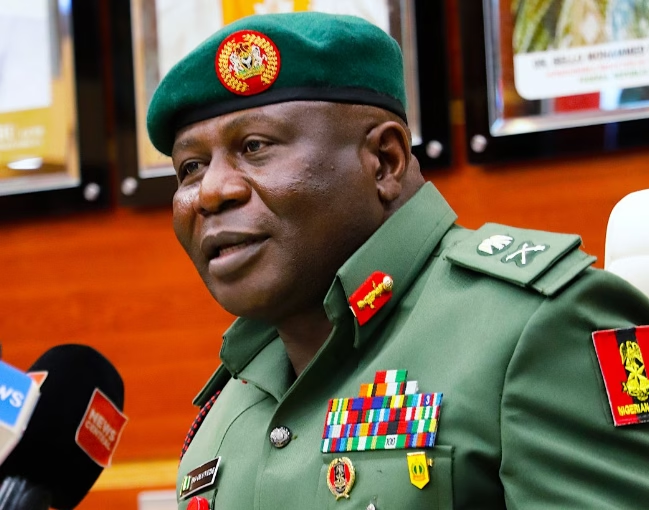Nigerian military leaders have called for stronger collaboration between security forces, judicial bodies, and civil society to dismantle terrorist networks and counter extremism, underscoring the need for unified strategies in addressing the nation’s security challenges. The appeal was made during a three-day workshop organized by the Nigerian Army School of Legal Services in Zaria, Kaduna State, which began on Tuesday under the theme: “The Menace of Terrorism: A Multi-Stakeholder Approach to Fighting Terrorism in Nigeria.”
Representing Lieutenant General Olufemi Oluyede, Chief of Army Staff (COAS), Major General Ahmadu-Bello Mohammed emphasized that defeating terrorism hinges on coordinated efforts, information-sharing, and adherence to legal frameworks. “Terrorist threats evolve constantly, demanding holistic solutions,” Mohammed stated. He stressed that only through “robust cooperation, respect for the rule of law, and addressing root causes of extremism” could Nigeria disrupt destabilizing networks. The workshop, he noted, aimed to equip mid-level and junior military officers with legal expertise required for counterterrorism operations while fostering dialogue among stakeholders.
Major General A. Ndalolo, represented by Colonel B. Garba, highlighted the role of legal officers in balancing security imperatives with human rights standards. “Legal advisors must ensure justice while guiding commanders to align operations with national and international laws,” he said, emphasizing compliance with humanitarian protocols during investigations and prosecutions. The event, he added, would strengthen coordination between legal and operational units to enhance counterterrorism efficiency.
Acting Commandant of the Nigerian Army School of Legal Services, Lieutenant Colonel Henrietta Longpoe, framed terrorism as a systemic challenge requiring societal engagement. “Military action alone cannot eradicate this threat—it demands collective responsibility,” she said. The workshop sought to clarify legal definitions of terrorism and refine strategies for prosecution, addressing gaps in current approaches. Over 150 participants, including personnel from diverse military formations, are expected to analyze case studies and emerging legal dilemmas linked to extremism.
Nigeria continues to grapple with attacks by groups such as Boko Haram and bandit militias, particularly in the northwest and northeast regions. The workshop reflects ongoing efforts to integrate legal rigor with security operations, amid calls for reforms to improve intelligence-sharing and community-based solutions to counter radicalization.
